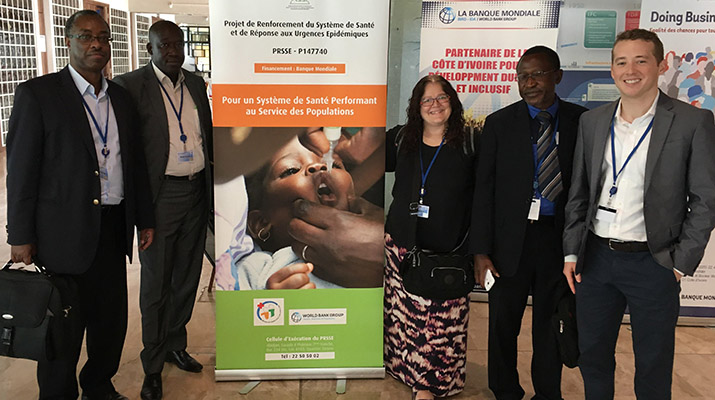Côte d’Ivoire Partners with MSH to Launch Performance-Based Financing Program
Côte d’Ivoire Partners with MSH to Launch Performance-Based Financing Program

Abidjan, Côte d’Ivoire—December 19, 2016—The Ministry of Public Health and Hygiene (MSHP) in Côte d’Ivoire officially established a technical assistance agreement with MSH to support the introduction of the country’s first ever performance-based financing (PBF) program. The PBF program is designed to increase the provision and quality of health services at 401 primary health centers and 19 hospitals in 19 of the country’s 82 health departments.
As part of this two-year agreement, MSH, in partnership with the Global Challenge Corporation, will strengthen the managerial and technical capacity of the MSHP and local NGOs to implement PBF. This will include establishing performance contracts with health care providers and the MSHP at all levels of the health system, verifying quantitative and qualitative health indicators, coaching health care providers to improve their performance, and ensuring that reliable data is strategically used for improved planning and evidence-based decision-making.
The government of Côte d’Ivoire has adopted PBF as a key strategy for reducing maternal and infant mortality among the most vulnerable populations while contributing to its long-term goal of achieving universal health coverage. Unlike traditional payment mechanisms, PBF directly rewards health care providers with financial incentives that are tied to the achievement of results based on pre-determined performance targets. In Côte d’Ivoire, PBF will be used to strengthen all key building blocks of the health system, improve provider and facility efficiency, and ensure accountability while addressing common challenges among healthcare providers, including low motivation, insufficient empowerment, and attrition.
This technical assistance agreement will be supported in 14 districts through the World Bank’s Projet de Renforcement du Système de Santé et de Réponse aux Urgences Epidémiques (PRSSE) and in five districts through the Global Fund to Fight AIDS, Tuberculosis and Malaria, United Nations Children’s Fund (UNICEF), President’s Emergency Plan for AIDS Relief (PEPFAR), and United States Agency for international Development (USAID).